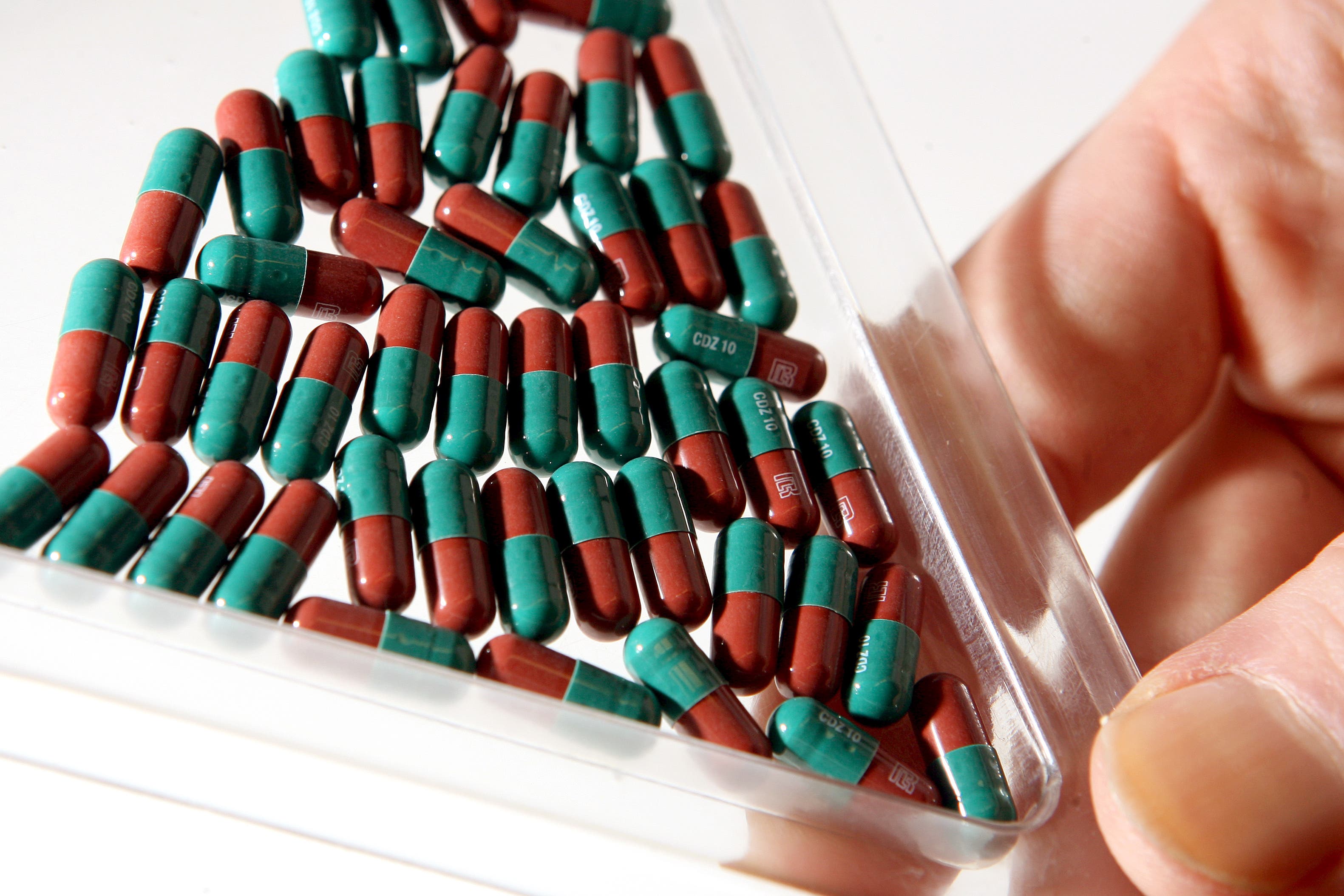Antibiotics can help certain bacteria survive for longer, research suggests
Until now it had been thought that antibiotics kill bacteria or stop them growing.

Your support helps us to tell the story
From reproductive rights to climate change to Big Tech, The Independent is on the ground when the story is developing. Whether it's investigating the financials of Elon Musk's pro-Trump PAC or producing our latest documentary, 'The A Word', which shines a light on the American women fighting for reproductive rights, we know how important it is to parse out the facts from the messaging.
At such a critical moment in US history, we need reporters on the ground. Your donation allows us to keep sending journalists to speak to both sides of the story.
The Independent is trusted by Americans across the entire political spectrum. And unlike many other quality news outlets, we choose not to lock Americans out of our reporting and analysis with paywalls. We believe quality journalism should be available to everyone, paid for by those who can afford it.
Your support makes all the difference.Antibiotics can help some bacteria survive for longer, new research suggests.
Until now it had been thought that antibiotics – widely used as blanket medication for bacterial infections – kill bacteria or stop them growing.
However, researchers say they have shown for the first time that the drugs can actually benefit bacteria and protect them from death.
They found that some bacteria did not grow in the laboratory, until they were treated with antibiotics.
Antibiotic resistance has stopped some antibiotics from working, as bacteria change in response to the use of these medicines.
This means that untreatable infections could be the biggest global cause of death by 2050, experts say.
Our research is evidence of unseen side effects – we just don’t know how drugs are changing the balance of bacterial populations in those contexts
In the research funded by the Engineering and Physical Sciences Research Council (EPSRC) and published in the Proceedings of the National Academy of Sciences (PNAS) journal, the team found that certain antibiotics can alleviate stress and help prevent the decline of bacterial populations when they are dying out.
This means more bacteria survive for longer compared to untreated populations.
Professor Robert Beardmore, lead author from the University of Exeter, said: “The study began when we realised that, surprisingly, some bacterial strains didn’t grow in the lab until we treated them with antibiotics.
“As a result, this is the first evidence that antibiotics can promote bacterial survival.
“To tackle antibiotic resistance worldwide, we need to understand far more about the impact of these drugs on the balance of bacterial ecosystems, like those in the gut microflora, or in rivers that are exposed to antibiotics.
“Our research is evidence of unseen side effects – we just don’t know how drugs are changing the balance of bacterial populations in those contexts.”
Bacteria undergo periods of rapid growth, punctuated by periods where growth stops because nutrients are scarce, so the bacteria die off.
So far, little has been understood about how antibiotics mediate populations during those periods.
The researchers examined E.coli in lab experiments.
They found that antibiotics targeting ribosomes – factories that help cells make protein from DNA – slowed bacteria down when they were growing.
Many antibiotics slow the growth of bacteria, but we show that can help bacteria overcome stresses caused by a lack of nutrients that might otherwise kill them off, ultimately helping them to survive
But they also stopped them from dying, meaning the bacteria survived for longer overall, the study suggests.
Dr Emily Wood said: “Many antibiotics slow the growth of bacteria, but we show that can help bacteria overcome stresses caused by a lack of nutrients that might otherwise kill them off, ultimately helping them to survive.
“In our experiments, this comes about because the antibiotics are antioxidants, meaning they help cells deal with some of the waste products they make as they grow.
“Importantly, the antibiotic-resistant bacteria we tested didn’t get the same benefits so in our study, treatment does not promote resistance, which is unusual.
“Our next step will be to measure how these findings alter the dynamics of multi-species bacterial communities.”